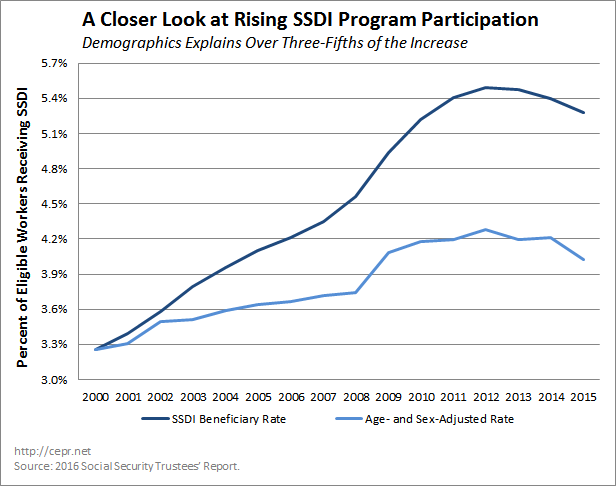Ah that does make more sense. The numbers I could find still show an increase (although admittedly a smaller one) after correcting for age and sex, but obviously different people with different models are going to get moderately different results even when trying to correct for the same factors.

But in my mind, UBI provides a strong disincentive for people to seek work all by itself in that their needs can be met while doing whatever they want all day every day. Tying this together with the fact that most people's first job is making a lowly wage (because learning to work and become a contributing member to society is not easy), a lot of people will simply shrug off the idea of working altogether. And in my mind, it gets worse from there. To use concrete numbers, let's say 20% of the population decides not to work and just live off UBI for what amounts to their entire lives (because it's never really a good time to find a job). Do you see this society as being healthy and vibrant?
Call me idealist, but I believe a healthy work ethic is to some extent both a learned behavior and imperative to a functional society. And UBI would have negative consequences for work ethic (on average).
So let's break this down because you have three points here:
#1. The first is that your gut instinct is that a UBI would cause a significant decrease in the number of people who chose to work.
Let's look at the data we have from experiments. In the New Jersey Graduated Work Incentive Experiment back in the 1960s and 1970s found that providing a guarenteed basic income to households resulted in one hour less worked per week for men (so let's call it a 2.5% reduction). The reduction for women was substantially larger (about 5 hours less worked per week, so let's say 12.5%), but was driven primarily by young mothers choosing to stay home with children rather than work, which translated into significantly better educational outcomes for children in the households included in the study.
In the Canadian "Mincome" Study conducted in Dauphin (at town of about 13,000 people), again found that the only people who worked less were mothers of children and teenagers, and that this reduction in work was again reflected in substantially improved educational outcomes.
There are new trials going on right now in Finland, the Netherlands, the UK, Canada (Ontario) and the US (Oakland). If, as seems likely to me, these modern studies replicate the results observed in the NGWIE and Mincome experiments that, aside from allowing mothers who chose to do so to spend more time with their children, a UBI does not produce any substantial decrease in labor force participation itself, would you change your views?
#2 The second is whether a society in which fewer people chose to work is a better, worse, or equivalent on to the one we have today.
No, I don't think work, in of itself, has any special moral value. A society where no one has any drive or passion is clearly a poorer one. But I know plenty of folks not currently working for a living who still have passion and work hard. When I was younger and hung out more in minimum wage circles, I also know plenty of people who showed up for their shifts on time and collected their paychecks, yet completely lacked passion or drive.
#3, The third is our original disagreement over whether or not people who are willing to work will be able to find jobs in the future.
We may have to agree to disagree on this one. But hopefully I have at least given you some useful things to think about and you will be open to reevaluating your position in the future when (or if) the displacement from paid work becomes more obvious for an increasingly large swath of able bodied americans.
To modify your own question from above, let's say 20% of the population is unable to find paid work, nor are they able to be absorbed by the modest social safety net we currently have (SSDI, private charity, support from/living with extended family, etc). Do you see that as a healthy and vibrant society? Or a society where you'd feel safe walking the streets at night?